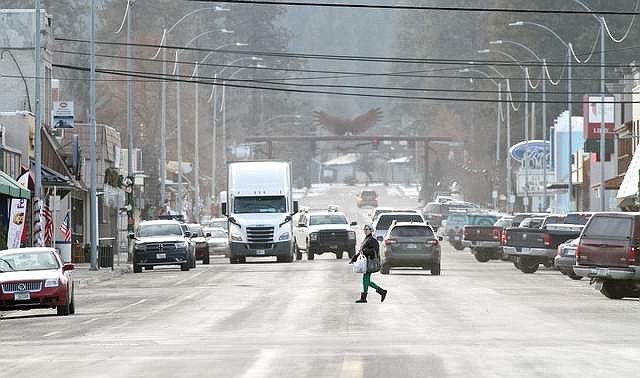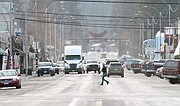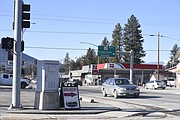Business district proposals headed back to city council
The Western News | UPDATED 5 years, 10 months AGO
A pair of once controversial business district proposals are headed back before Libby City Council after the municipality’s zoning commission approved the documents during a hearing devoid of public opposition.
The twin proposals, which drew harsh criticisms at city meetings in months past, were unanimously recommended for adoption at a Feb. 18 zoning commission meeting. The move sends the packages of zoning changes back to city council for another public hearing before final adoption.
“They have been pretty well hammered out,” said Kristin Smith, a city councilor who sits on Libby’s newly created zoning commission, after a call for public comment went unanswered.
That was not the case in October, when opponents — many of them business owners — charged city officials with developing economically-stifling regulations and potentially infringing on property rights. The two districts, one running along U.S. Highway 2 and the other anchored by California and Mineral avenues, came with a slew of zoning changes intended to foster economic activity and aesthetic appeal.
Among the more divisive was a proposal affecting businesses undergoing remodeling. Existing shops were to be exempt from the zoning changes, but projects including renovation work exceeding 10 percent of a store’s exterior would trigger the aesthetic requirements.
Faced with stiff resistance, city councilors amended several of the more controversial aspects, including the provision addressing remodeling.
Under the edited downtown business district proposal, new businesses must incorporate 10 percent of landscaping in paved parking lots. At least 50 percent of the ground floor facade of stores along Mineral and California avenues must be either windows or doorways.
Blank storefronts along the pedestrian thoroughfares are banned in the proposal. Likewise, the guidelines prohibit the use of fluorescent, dayglo or neon materials, plywood, asphalt shingles or pre-engineered metal.
Another clause bans chain link fencing along Mineral and California avenues.
The bulk of regulations potentially coming to the highway commercial district involves parking. New buildings must, under the changes, include permanent and maintained parking lots.
Certain types of uses are prohibited in the districts. In the downtown area, property owners are prohibited from opening adult stores, bulk fuel storage facilities and crematoriums, sell manufactured or mobile homes, or erect wireless towers, among others.
Banned uses along U.S. Highway 2 include commercial storage units, kennels and inpatient health facilities.
Residential uses are restricted in both districts. Along California and Mineral avenues, residential units cannot be built on the ground floor facing the street, but are permitted on upper levels.
Similarly, multi-family housing is allowed along the highway corridor, but only if residences are located above a commercial enterprise.
While the proposals must undergo another round of public scrutiny before Libby City Council decides to adopt them, officials in attendance expressed relief that the process was nearing an end. The small audience for the public hearing included Mayor Brent Teske, City Administrator Jim Hammons and city councilors Brian Zimmerman and Gary Beach.
“I would like to thank the board for pushing through with this,” Zoning Commissioner Jennifer Nelson told her colleagues. “This has been a long and arduous process.”
The proposals were headed to a final city council vote late last year when the city attorney discovered a decades old ruling that cast the zoning process in doubt. Though the proposals had gone through the planning board, an opinion written by a state attorney general in the 1990s indicated that approval from a zoning commission, which Libby lacked, was needed.
In response, city councilors created the zoning commission several months ago, picking sitting members of the planning board to fill its ranks. When they took up the amended proposals anew last month, many were looking at regulations they had not only previously reviewed, but helped craft.
“Thank you guys for everything you’ve done. Like I said before, this was a learning experience,” Teske told the zoning commissioners after the Feb. 18 hearing. “This thing got pretty hashed out, but it’s a start.”





